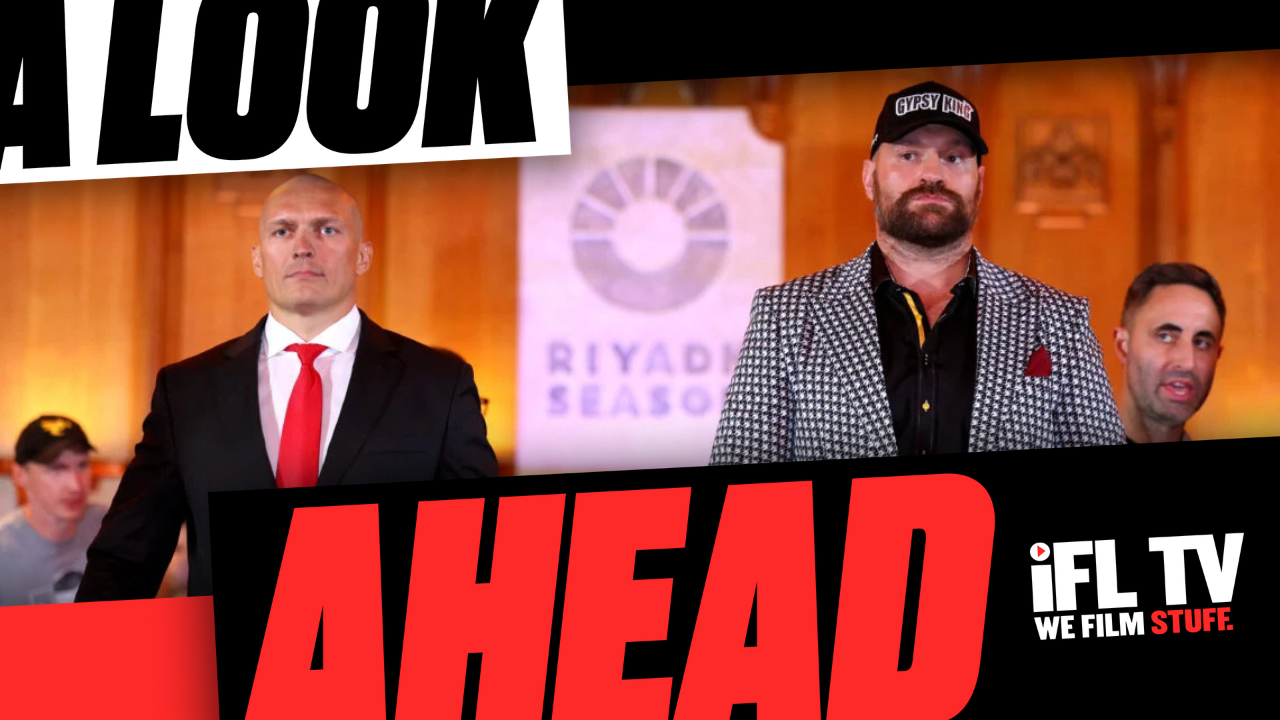OLEKSANDR USYK VS TYSON FURY 2: REPEAT OR REVENGE?
It’s finally here: the most highly anticipated rematch of the year, Oleksandr Usyk vs Tyson Fury 2.
A fight that will either solidify Oleksandr Usyk’s legacy as an all-time pound-for-pound great or write Tyson Fury into the history books as one of the greatest heavyweights of all time. Either way, what we will witness will be something special.
After the first fight was pushed back to May following a gruesome cut above Fury’s eye, the delay only fueled the hype for what became a historic night in Riyadh on May 18th.
The early rounds were close, with both fighters carefully analyzing and downloading data for the rest of the fight.
Fury appeared to find his rhythm slightly quicker, gaining the ascendancy in the mid-rounds. However, after easing off the pressure, Usyk capitalized and hurt Fury badly in round nine, with the Brit fortunate to make it through the round.
Even though Usyk now looked like the boss in the ring, the fight still felt balanced.
When the final bell rang, the general consensus was that Usyk had done enough to win. But in boxing, you can never be sure.
The scorecards were read, and the Ukrainian was crowned the Undisputed Heavyweight Champion of the World by split decision.
It was a special night for the Olympic gold medalist as he inflicted the first loss of Tyson Fury’s 36-fight career.
Before the fight, it was widely known there was a rematch clause, and, as expected, Fury wasted no time invoking it. Just over 10 days after the first fight, an official announcement confirmed the rematch would take place on December 21st in Riyadh.
And now, here we are, just days away.
Unlike the first fight, the build-up has been relatively low-key, with minimal drama.
Both fighters’ camps appear to have gone well, and the absence of trash talk at the launch press conference—especially from Fury’s side—is a testament to how seriously both men are taking this fight.
With no trilogy clause in the contract, the winner could easily retire as the greatest heavyweight of this generation. If Fury wins, public demand for a trilogy may compel him to continue, but if Usyk wins, he could very well call it a day and retire on top.
So, let’s talk about the actual fight.
In the first bout, Fury’s cut, sustained during sparring, proved a significant hindrance. It was later revealed he couldn’t spar at all after the injury. If you’ve followed Fury’s career, this explains a lot.
When Fury gained momentum in the first fight, he failed to capitalize, opting instead to back off. This allowed Usyk to seize control, which the Ukrainian did brilliantly, demonstrating the champion he is.
Fury tried to outbox the boxer. Against Deontay Wilder, he overpowered the power puncher, but this was a different challenge entirely. It’s hard to imagine Fury repeating the same mistake twice.
Usyk, on the other hand, showed his class. An elite champion, Olympic gold medalist, and two-weight world champion, he proved too much for Fury in the later rounds.
This time, Usyk doesn’t need the early rounds to gather data—he’s already got 36 minutes of experience fighting Fury. That knowledge will be crucial.
While we likely won’t see a drastically different Usyk, we will probably see a very different Fury.
Expect him to use his size more effectively this time. He’ll likely weigh in heavier than the 262 lbs he carried in the first fight and adopt a more aggressive approach.
For Fury, this is all-or-nothing. A proud fighter, the idea of another heavyweight being better will undoubtedly drive him to leave everything in the ring.
If Fury chooses aggression and pushes Usyk back, it could create openings for the unified champion. As we saw in the first fight, Usyk has the power to hurt Fury.
Despite the first result, this remains a captivating contest between two of the sport’s greats.
Regardless of the outcome, let’s appreciate the privilege of witnessing these two generational talents share the ring—not once, but twice.

